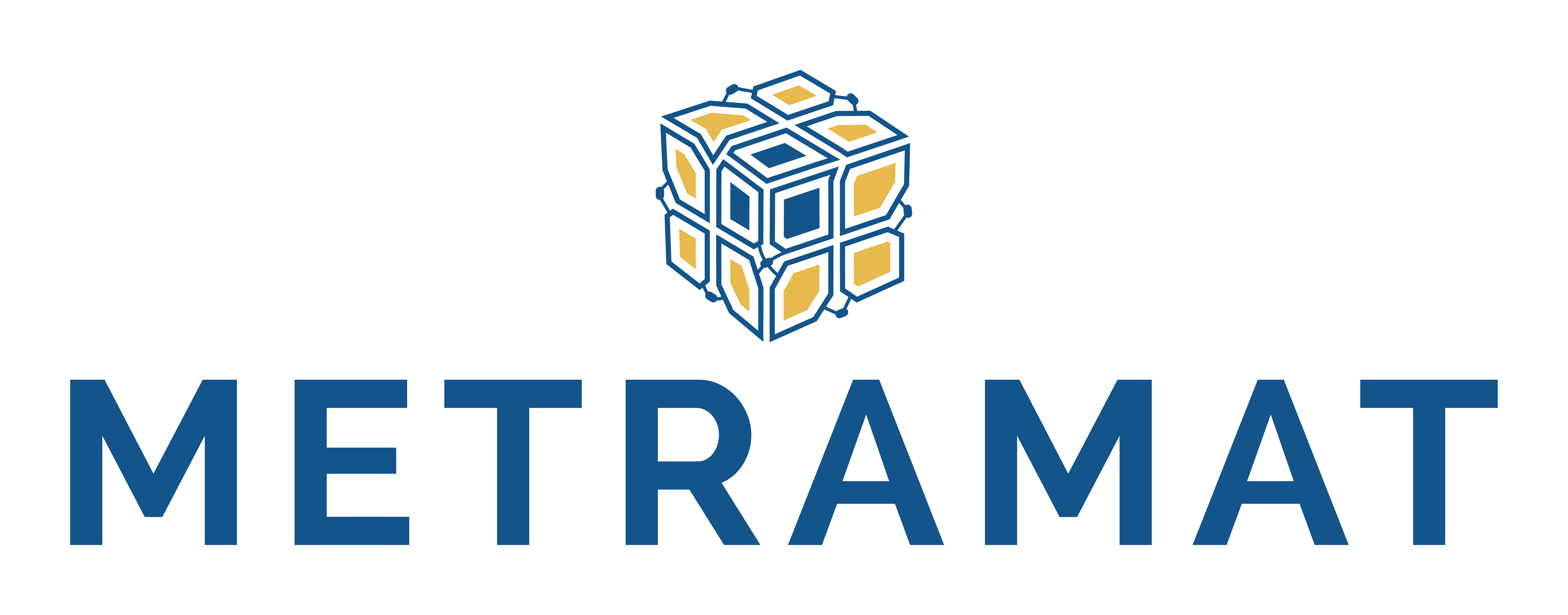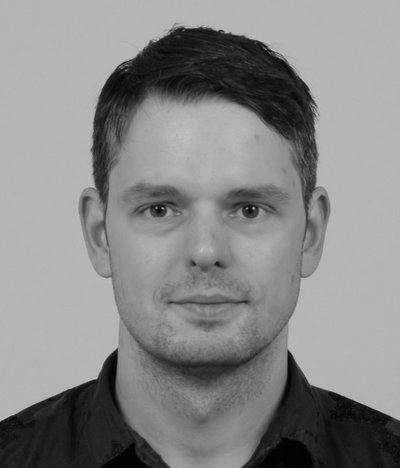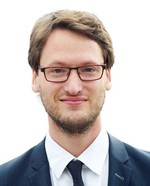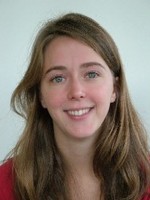DC Positions
Find more information about all METRAMAT DC positions and how to apply below.
Please note that you have to comply with the mobility rule: researchers must not have resided or carried out their main activity (work, studies, etc.) in the country of the recruiting institution for more than 12 months in the 36 months immediately before their recruitment date.
For more information on the project and recruitment, see Recruitment Information.
We look forward to your application!
Open Positions
Host institution: TU/e (NL): Department of Mechanical Engineering (Mechanics of Materials Group)
Main supervisor: Ondrej Rokos (TU/e)
Co-supervisors/mentors:Valentina Zega (PoliMi)
Duration: 48 months
Gross salary: Monthly gross salary is €2770 in the first year and increases to €3539 in the fourth year.
Required profile: The applicant should have excellent analytical, numerical and experimental skills and hold a university degree (MSc) in Mechanical Engineering, Applied Mathematics, Physics or similar. A strong interest in computational mechanics and multi-scale material modelling is required. Experience with computational and/or experimental multi-physics (electro-magneto-mechanical) analysis is preferred.
Objectives: The main objective is to develop modelling techniques for rational design and optimization of new metamaterial microstructural unit cells with switchable effective mechanical properties. The focus will be on relation between static and dynamic properties, such as effective stiffness and anisotropy changes, leading, upon transformation, to switchable directional band gaps or switchable directionality in wave propagation and vibration control.
Expected results: Procedures and tools for computational design and homogenization of switchable metamaterials, including their computer implementation. Optimized unit cell geometries, with corresponding actuation mechanisms, including design principles thereof.
Planned secondments: Academic: NTNU, 3 months, coordination with WP2, DC6; PoliMi, 3 months, MEMS testing systems, coordination with WP3, DC 8. Industrial: 3 months, AddI, manufacturing aspects of the design.
Female researcher contact information: Valentina Zega
For details of application procedure, click on Apply now.
Host institution: KU Leuven (BE): Department of Mechanical Engineering (Leuven Mechatronic System Dynamics Group)
Main supervisor: Claus Claeys (KUL)
Co-supervisors/mentors: Varvara Kouznetsova (TU/e)
Duration: 48 months
Gross salary: You will receive a monthly gross salary of €3400, plus €600 mobility allowance and if applicable, €660 family allowance. The net income will be lower since a deduction of compulsory (employer/employee) social contributions as well as direct taxes (e.g. income tax) need to be considered.
Objectives: Develop guidelines for efficient metamaterial design solutions that allow compact integration on existing, possibly load bearing complex geometry, structures for vibration shielding and mitigation and are robust to manufacturing tolerances and process parameters.
Expected results: Efficient modelling strategies, e.g. mesh morphing, to scan the design space of individual resonant metamaterial unit cells. Efficient modelling strategies for allow efficient optimisation of metamaterial placements on complex geometry host structure, especially in the absence of periodicity. Development of “rule of thumb” design strategies for metamaterial placement, not requiring extensive numerical simulations. Strategies for identification of parameter space for metamaterial design which is robust to manufacturing tolerances and process quality.
Planned secondments: Academic: TU/e, 3 months, coordination with WP3, DC9. Industrial: 3 months, ASML, industrial requirements on vibration insulation patch design; KMWE, 3 months, validation of robust manufacturing approaches.
Female researcher contact information: Varvara Kouznetsova
For details of application procedure, click on Apply now.
Host institution: TU/e (NL): Department of Mechanical Engineering (Mechanics of Materials Group)
Main supervisor: Varvara Kouznetsova (TU/e)
Co-supervisors/mentors: Elke Deckers (KUL)
Duration: 48 months
Gross salary: Monthly gross salary is €2770 in the first year and increases to €3539 in the fourth year.
Required profile: The applicant should have excellent analytical, numerical and experimental skills and hold a university degree (MSc) in Mechanical Engineering, Applied Mathematics, Physics or similar. A strong interest in computational mechanics and multi-scale material modelling is required. Experience with computational and/or experimental vibro- acoustics is preferred.
Objectives: Development of efficient computational techniques to enable simulations for metamaterial integration into (existing) components or systems, which imposes constraints on the finite size and shape of metamaterial domain, and requires taking into account the effects of boundaries and interfaces to other system components.
Expected results: Metamaterial computational homogenization methodology with significantly increased computational efficiency (at least factor 100 compared to the current version). Reduced order computational homogenization methodology for linear metamaterials compatible with industrial simulation design practices (in collaboration with ASML). Demonstration of the methodology capabilities on the linear metamaterial, as developed by DC2, and its system integration design.
Planned secondments: Academic: KUL, 3 months, application of the developed methodology to metamaterial designs developed by DC2. Industrial: ASML, 3 months, integration of methodology in a (demo) design workflow.
Female researcher contact information: Varvara Kouznetsova
For details of application procedure, click on Apply now.

Positions (in the process of being) filled
Host institution: KU Leuven (BE): Department of Mechanical Engineering (Leuven Mechatronic System Dynamics Group)
Main supervisor: Elke Deckers (KUL)
Co-supervisors/mentors: Varvara Kouznetsova (TU/e)
Duration: 48 months
Gross salary: You will receive a monthly gross salary of €3400, plus €600 mobility allowance and if applicable, €660 family allowance. The net income will be lower since a deduction of compulsory (employer/employee) social contributions as well as direct taxes (e.g. income tax) need to be considered.
Objectives: A numerical investigation and experimental validation of novel non-linear metamaterial concepts to design metamaterials outperforming linear metamaterials of a comparable weight, i.e. non-linear metamaterials with broadband and/or self-adaptable frequency range of vibration reduction.
Expected results: Efficient simulation tools for investigation of non-linear metamaterials. Design(s) of (a) non-linear metamaterial for frequency modulation or broadband vibration reduction. Realization and experimental validation of this design(s) on an academic prototype.
Planned secondments: Academic: TUE, 3 months, computational homogenization for simulation of non-linear metamaterials, with DC9, WP3. Industrial: ASML, 3 months industrial perspective and requirements for advanced broadband, self-adaptable vibration control.
Female researcher contact information: elke.deckers [at] kuleuven.be
Female researcher contact information: Elke Deckers
For details of application procedure, click on Apply now.
Host institution: TU/e (NL): Department of Mechanical Engineering (Mechanics of Materials Group)
Main supervisor: Varvara Kouznetsova (TU/e)
Co-supervisors/mentors: Valentina Zega (PoliMi)
Duration: 48 months
Gross salary: Monthly gross salary is €2770 in the first year and increases to €3539 in the fourth year.
Required profile: The applicant should have excellent analytical, numerical and experimental skills and hold a university degree (MSc) in Mechanical Engineering, Applied Mathematics, Physics or similar. A strong interest in computational mechanics and multi-scale material modelling is required. Experience with computational and/or experimental non-linear dynamics is preferred.
Objectives: Investigation of non-linear phenomena exploitable for metamaterial design for 3D meta-MEMS. Analysis of the suitability of the amplitude dependent energy exchange between propagating and evanescent waves for potential design of a sensor or actuator. Development of efficient modelling and analysis techniques for non-linear metamaterials going beyond the direct fully resolved time domain simulations.
Expected results: Identification and analysis of suitable non-linear wave phenomena for potential application in 3D meta-MEMS (with DC10). Non-linear computational homogenization methodology (with DC9) for modelling non-linear metamaterial integrated in a 3D meta-MEMS package. Non-linear reduced order model for non-linear metamaterials (with DC10).
Planned secondments: Academic: GIT, 3 months, identification and analysis of suitable non-linear wave phenomena; PoliMi, 2 months, development of non-linear reduced-order models, with DC10, WP3. Industrial: STM, 2 months, non-linear 3D meta-MEMS design requirements and perspectives.
Female researcher contact information: Varvara Kouznetsova
For details of application procedure, click on Apply now.
Main supervisor: Brecht Van Hooreweder (KUL)
Co-supervisors/mentors: Nima Razavi (NTNU)
Duration: 48 months
Gross salary: You will receive a monthly gross salary of €3400, plus €600 mobility allowance and if applicable, €660 family allowance. The net income will be lower since a deduction of compulsory (employer/employee) social contributions as well as direct taxes (e.g. income tax) need to be considered.
Required profile:
- I have a master degree in engineering, physics or mathematics, obtained no longer than four years ago, and performed above average in comparison to my peers.
- I am proficient in written and spoken English.
- I have not had residence or main activities in Belgium for more than 12 months in the last 3 years.
- During my courses or prior professional activities, I have gathered some basic experience with additive manufacturing, design, and/or mechanical testing and/or I have a profound interest in these topics.
- I am a hands-on problem solver and I like experimentation. I see myself working regularly in the AM lab and in the AM durability lab.
- I am interested in performing research in a structured and scientifically sound manner. I read technical papers, understand the nuances between different theories and implement and improve methodologies myself.
- I feel comfortable to work as a team member and I am eager to share my results to inspire and being inspired by my colleagues.
- I value being part of a large research group which is well connected to the additive manufacturing industry and I am eager to learn how academic research can be linked to industrial innovation roadmaps.
Objectives: Identification, based on thought understanding, of L-PBF process parameters for the production of high-quality thin walls and struts (with critical dimension ranging from 100μm to 1500μm) for the manufacturing of small resonators and metal lattice structures. Development of a methodology to quickly and accurately predict the melt pool dimensions that will be used to rapidly estimate the parameters input such as laser speed and power, layer thickness, and hatch spacing. Characterization of the quality of the fabricated parts in relation to the process parameters.
Expected results: The relation between the L-PBF processing parameters and the quality of printed metamaterial units with fine features in the order of hundreds of micrometres. A methodology to predict the melt pool dimension for a wide range of processing parameters of small features. Manufacturing of metamaterials for testing and demonstration in the other sub-projects.
Planned secondments: Academic: NTNU, 3 months, small scale mechanical testing of printed samples. Industrial: AddI, 3 months advanced processing control; GoS, 3 months, characterization of printed samples using impulse excitation technique.
Female researcher contact information: Varvara Kouznetsova
For details of application procedure, click on Apply now.

Main supervisor: Nima Razavi (NTNU)
Co-supervisors/mentors: Brecht Van Hooreweder (KUL)
Duration: 36 months
Gross salary: As a PhD candidate (code 1017) you are normally paid from gross NOK 532 200 per annum before tax, depending on qualifications and seniority. From the salary, 2% is deducted as a contribution to the Norwegian Public Service Pension Fund.
Required profile:
- Highly motivated, independent, and enthusiastic candidate with a professionally relevant background within one or more of the following subject areas: Mechanical/civil/aerospace/processing/Industrial engineering, and/or Materials technology.
- Your education must correspond to a five-year Norwegian degree program, where 120 credits are obtained at the master’s level.
- You must have a strong academic background from your previous studies and an average grade from the master’s degree program, or equivalent education, which is equal to B or better compared with NTNU’s grading scale. If you do not have letter grades from previous studies, you must have an equally good academic basis. If you have a weaker grade background, you may be assessed if you can document that you are particularly suitable for a PhD education.
- You must meet the requirements for admission to the engineering faculty’s doctoral program
- Excellent written and oral English skills.
- Strong background on solid mechanics and mechanics of materials.
- Experience in mechanical testing of materials or components.
- Skills in using Finite Element Codes such as ABAQUS, ANSYS, etc. are well evaluated during the recruiting process.
- Excellent track record of academic achievement and a strong interest in conducting experimental and numerical research.
- Understanding basic principles of additive manufacturing and how the process conditions may alter the quality of AM parts.
- Knowledge of metallography and material science would be given additional credit in evaluation.
- The ability to conduct high quality research and publish results in acknowledged peer-reviewed journals is an asset.
Expected results: Understanding of the multi-scale deformation and failure mechanisms in metal 3D printed metamaterials under static, cyclic and vibrational loads. Qualitative and quantitative representation of design-fabrication-fatigue performance link. Fatigue properties in the form of life and strength to be used as input for theoretical failure prediction tools for optimization the metamaterial designs.
Planned secondments: Academic: KUL, 3 months, design and fabrication of samples in lab conditions; Industrial: KMWE, 3 months, design and fabrication of samples in industrial setting.
Female researcher contact information: Varvara Kouznetsova
For details of application procedure, click on Apply now.

Main supervisor: Brecht Van Hooreweder (KUL)
Co-supervisors/mentors: Nima Razavi (NTNU)
Duration: 48 months
Gross salary: You will receive a monthly gross salary of €3400, plus €600 mobility allowance and if applicable, €660 family allowance. The net income will be lower since a deduction of compulsory (employer/employee) social contributions as well as direct taxes (e.g. income tax) need to be considered.
Required profile:
- I have a master degree in engineering, physics or mathematics, obtained no longer than four years ago, and performed above average in comparison to my peers.
- I am proficient in written and spoken English.
- I have not had residence or main activities in Belgium for more than 12 months in the last 3 years.
- During my courses or prior professional activities, I have gathered some basic experience with additive manufacturing, design, and/or mechanical testing and/or I have a profound interest in these topics.
- I am a hands-on problem solver and I like experimentation. I see myself working regularly in the AM lab and in the AM durability lab.
- I am interested in performing research in a structured and scientifically sound manner. I read technical papers, understand the nuances between different theories and implement and improve methodologies myself.
- I feel comfortable to work as a team member and I am eager to share my results to inspire and being inspired by my colleagues.
- I value being part of a large research group which is well connected to the additive manufacturing industry and I am eager to learn how academic research can be linked to industrial innovation roadmaps.
- During my PhD I want to grow towards following up the project that I am involved in and representing the research group on project meetings or conferences. I see these events as an occasion to disseminate my work to an audience of international experts and research colleagues, and to learn about the larger context of my research and the research project.
Expected results: Dedicated graded metamaterial specimen designs that allow the multi-axial testing of metamaterial interior and/or interfaces. Experimental characterization of the metamaterial quasi-static and fatigue behaviour under multi-axial loading using the dedicated graded samples. Analysis of the fatigue behaviour of metamaterial structures under multi-axial loading and establishment of multi-axial fatigue assessment criteria.
Planned secondments: Academic: 2 + 8 months at NTNU, sample design for fatigue testing and fatigue experiments. Industrial: 3 months, GoS, non-destructive characterization of as-manufactured and loaded multi-axial samples.
Female researcher contact information: Varvara Kouznetsova
For details of application procedure, click on Apply now.

Host institution: PoliMi (IT): Department of Civil and Environmental Engineering
Main supervisor: Valentina Zega (PoliMi)
Co-supervisors/mentors: Alberto Corigliano (PoliMi), Ondrej Rokos (TU/e), Marc Geers (TU/e), Carlo Valzasina (STM)
Duration: 36 months
Gross salary: You will receive a monthly gross salary of ~€3311, plus €600 mobility allowance and if applicable, €660 family allowance. The net income will be lower since a deduction of compulsory (employer/employee) social contributions as well as direct taxes (e.g. income tax) need to be considered.
Required profile: Highly motivated, independent and enthusiastic doctoral researcher with master degree in mechanical engineering, civil engineering, mathematical engineering, material engineering or equivalent relevant master degrees. Strong background on solid mechanics, computational methods and mechanics of materials. Excellent track record of academic achievement and a strong interest in conducting applied research.
Objectives: The objective of this project is design for integration of metamaterials with switchable stiffness in Micro-Electro-Mechanical Systems (MEMS) testing equipment and MEMS packages for harsh environment, where the cross-coupling between different MEMS or between a MEMS package and external vibrations should be controlled and mitigated to improve the versatility of the equipment and ensure correct operation of MEMS based sensors.
Expected results: Fully resolved and reduced-order multi-physics models for designing (graded) metamaterial assemblies, based on the optimized geometries from DC1 and their integration into the MEMS testing equipment. Manufacturing proof-of-concept prototypes, in collaboration with DC5, and testing under conditions representative for MEMS testing equipment and packaging for harsh environment, including reliability assessment.
Planned secondments: Academic: TUE, 3 months, simulation techniques development and metamaterial optimization; KUL, 2 months, fabrication of the proof-of-concept prototypes. Industrial: STM, 2 months, test of the proposed solution in representative conditions.
Female researcher contact information: Valentina Zega
For details of application procedure, click on Apply now.
Host institution: PoliMi (IT): Department of Civil and Environmental Engineering
Main supervisor: Valentina Zega (PoliMi)
Co-supervisors/mentors: Alberto Corigliano (PoliMi), Varvara Kouznetsova (TU/e), Micheal Leamy (GIT), Carlo Valzasina (STM)
Duration: 36 months
Gross salary: You will receive a monthly gross salary of ~€3311, plus €600 mobility allowance and if applicable, €660 family allowance. The net income will be lower since a deduction of compulsory (employer/employee) social contributions as well as direct taxes (e.g. income tax) need to be considered.
Required profile: Highly motivated, independent and enthusiastic doctoral researcher with master degree in mechanical engineering, civil engineering, mathematical engineering, material engineering or equivalent relevant master degrees. Strong background on solid mechanics, computational methods, (nonlinear) dynamics and mechanics of materials. Excellent track record of academic achievement and a strong interest in conducting original research and innovation.
Objectives: Develop design approach for innovative 3D meta-MEMS sensors/actuators able to combine the tri-dimensionality of additive manufacturing techniques and the advanced control and manipulation of elastic waves by the nonlinear metamaterial. Demonstrate the performance on the proof-of-principle prototype.
Expected results: Design, using numerical simulations and analysis from DC4, a 3D meta-MEMS sensor/actuator based on nonlinear wave interaction phenomena. Fabrication of the proof-of-principle prototype (with DC 5), testing and dynamic performance evaluation of the design in collaboration with STMicroelectronics and fatigue and reliability assessment (with DC7).
Planned secondments: Academic: GIT, 3 months, analysis of suitable non-linear wave phenomena; TUE, 3 months, non-linear reduced-order techniques development with DC4, WP1. Industrial: STM, 2 months, tests of the fabricated proof-of-concept demonstrator.
Female researcher contact information: Valentina Zega
For details of application procedure, click on Apply now.

DC1, DC4, DC9
Department of Mechanical Engineering, Mechanics of Materials group

DC6
Department of Mechanical and Industrial Engineering

DC8, DC10
Department of Civil and Environmental Engineering

DC2, DC3, DC5, DC7
Department of Mechanical Engineering
Leuven Mechatronic System Dynamics Group
Additive Manufacturing Group







